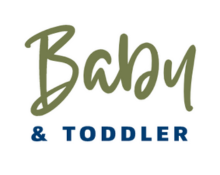
Breastfeeding an adopted baby, also known as adoptive breastfeeding or induced lactation, is possible with careful planning and preparation. While it may not be the same as breastfeeding a biological baby, it can still provide valuable benefits and help establish a close bond with your adopted child. Here are some important considerations:
Education and preparation: Educate yourself about the process of adoptive breastfeeding and seek guidance from healthcare professionals or lactation consultants who have experience in this area. They can provide information on inducing lactation, breastfeeding techniques, and support throughout your journey.
Inducing lactation: Inducing lactation involves stimulating the breasts to produce milk even if you have not gone through pregnancy. This can be achieved through a combination of techniques such as breast pumping, hormone therapy, and frequent nipple stimulation. Working with a healthcare provider or lactation consultant who specializes in induced lactation is crucial to developing an effective plan.
Supplementing with donor milk or formula: In cases where induced lactation is not successful or not the preferred option, supplementing with donor milk from a reputable milk bank or using formula can still provide your adopted baby with essential nutrition. Donor milk offers many of the same benefits as breast milk and can be an excellent option to support your baby’s growth and development.
Building a breastfeeding relationship: Breastfeeding is not solely about providing nutrition but also about creating a nurturing and bonding experience. Even if you are not producing a full milk supply, you can still engage in skin-to-skin contact, offer comfort through breastfeeding, and provide a soothing and calming environment for your baby.
Seeking support: Connecting with other adoptive breastfeeding parents or joining support groups can provide valuable information, encouragement, and emotional support. Online communities, local breastfeeding organizations, and lactation consultants can be excellent resources for guidance and support throughout your breastfeeding journey.
Remember that every breastfeeding journey is unique, and the amount of milk produced can vary among individuals. The important thing is to focus on the bonding experience and providing nourishment to your baby in the way that works best for you and your family. Consulting with healthcare professionals, including lactation consultants and your baby’s pediatrician, will ensure you receive personalized guidance and support as you navigate adoptive breastfeeding.
